Hundred Reasons - Interview
by Russell Ferguson
published: 16 / 2 / 2008
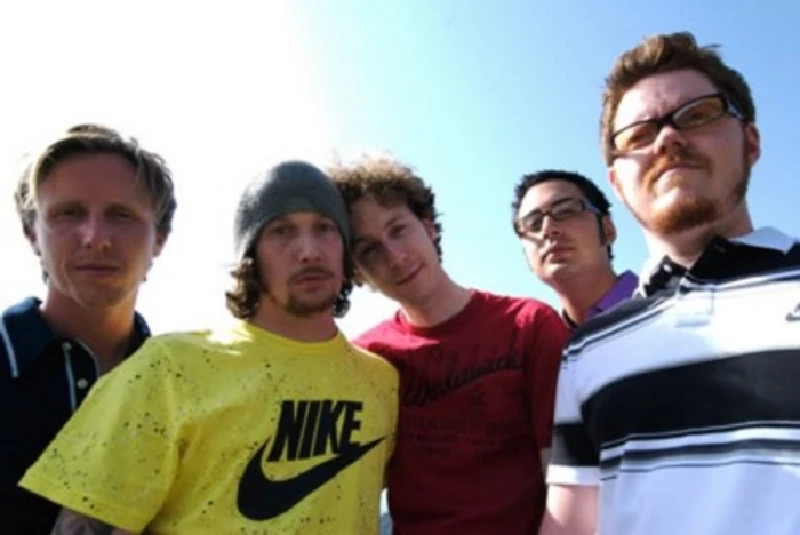
intro
With their label having gone into receivership, punk/metal act Hundred Reasons have recently been dropped their label for a second time. Guitarist Larry Hibbitt speaks to Russel Ferguson on their latest tour about a difficult few years and why the band keeps going
Punk/metal act Hundred Reasons’ debut album, ‘Ideas Above Our Station’, was released in 2002 to much critical acclaim and became Kerrang Album of the Year. Their second album ‘Shatterproof Is Not A Challenge’ was recorded in New York and released in 2004, but within a matter of days of its release they were dropped by their label Sony. After eighteen months they signed to V2 in 2005 and their third album, ‘Kill Your Own’, quickly followed in 2006. Singer Colin Doran was, however, diagnosed, just before the band went out on tour to promote ‘Kill Your Own’, as having career-threatening nodes on his vocal chords. The tour had to be postponed, but thankfully with the help of Harley Street specialists he has made a full recovery. Their fourth and latest album, ‘Quick The Word, Sharp The Action’ was recorded in Riga in Latvia and came out in October of last year. If being dropped by a label once was not enough, they were, however, forced to recently leave V2 who had gone into receivership. With all this in mind, Pennyblackmusic met with Hundred Reasons at a gig at the Leeds Cockpit on their latest tour and spoke to guitarist Larry Hibbitt who has also produced their last two albums. PB : Larry, why did you go to Riga to record you last album? LH : I was having a conversation in the pub with a friend of mine who is a recording engineer and he talked about this recording space in Latvia. He had made a few records there and said that it was really good, a really cool place to go and very different. We had recorded ‘Kill Your Own’ in London and just wanted to get away. I remembered this place in Riga and I looked it up on-line. We went to look it and it was this most amazing studio out in the suburbs there. It was like being in Abbey Road and had this huge space and so that was it. We shifted all our gear there and did the album. PB : What was wrong with recording the album in London? LH : There is nothing wrong with London, It’s just too easy to get distracted there. We recorded ‘Kill Your Own’ in Acton which is about thirty minutes from where I live. You are surrounded by all your family and friends In London. It’s get to a level at night in which you know all your mates are in the pub and you just want to pop in for a drink. We have worked in New York and we didn’t have that level of distraction, If you go somewhere and you make a point of going there you are already focused when you get on the plane. PB : As far as the studio was concerned was its technology as advanced as you were expecting ? LH : It was fantastic. PB : That surprises me. I thought somewhere like Riga might be three or four years behind. LH : Well, possibly, but three or four years behind is not a bad thing in a recording studio. Thirty years behind is a bad thing. PB : Your debut album, ‘Ideas Above Our Station’, was Kerrang Album of the Year. Did that put a lot of pressure on you when your recorded your second album, ‘Shatter Proof Is Not A Challenge’ ? LH : I guess so. It raised expectations but to be honest with you we didn’t have fucking clue what was going on. We were suddenly thrust into it and we had nothing to compare it to. It was the first album any of us had made. All we had recorded before was singles and EPs. ‘Ideas Above Our Station’ was made up of those, but this was the first record that had been released that anyone gave a shit about .We didn’t have a clue what was going on. Some people ask you if you feel pressure but we were pissed for most of it. It was a completely dizzying experience. PB : The second album is always a difficult one to record. How did you think that album went? It wasn’t as well received as the first one. LH : It wasn’t as well received as the first one but it still sold a lot of copies, more copies than people think it did, including us. That record was doomed from the start as were dropped by Sony eleven days after it was released, so it difficult to know if it just didn’t do as well or if it wasn’t pushed. It is very difficult to know either way. We still play songs off that album live and they go down very well, so it’s not like people hate the songs. PB : Do you think that in the record industry there is almost a chasm between what record labels expect and what bands expect ? LH : The record labels expect to make money, but they didn’t really off us. We are in that middle area between those bands who sell millions of records and those who don’t sell many. There is this whole thing about selling thousands of records and record labels are there to get their share of the money and they don’t anymore which is why a lot of people are getting sacked and bands dropped at the moment. PB : I still buy CDs. LH : A lot of people do, but do you know what ? I don’t know why they are losing money. I mean we can see how embarrassed EMI have been the last few weeks and what they actually spent money on. If you did that in any other industry you couldn’t expected it to last forever and it hasn’t there either. It is biting them in the a**e now. It’s just gone off centre. Sony is certainly guilty there too. The people who are suffering are the bands and what is even worse there is that people who work in the record industry are also being made redundant. The vast majority of my friends who live in London work in the record industry and it’s horrible watching them lose their jobs. PB : You did a lot of production work on the last two albums. How did that come about ? LH : It’s something I have always done since I was a kid. I went to this youth club in Twickenham near to where I lived and they had a little eight track there which they got from an Art Council grant and they set up this little studio which was really cool. When we were 14 and 15 we bunked off school and college and went there and recorded each other and made seven inch records. We basically had to run this place and it was fantastic. It had a venue next door and we could put gigs on and we got 500 people a month coming through. It was really cool and I think quite a few people from there ended up in bands. That was something that I learned first of all to do there. PB : You are not credited with the production on the first two albums. LH : No because I wouldn’t of wanted to take it on at that stage. Knowing what the buttons do is one thing, but production is a hell of a lot more than that. PB : What changed your viewpoint and made you move into production ? LH : By the time of ‘Kill Your Own’ I had also also made two records outside the band with a band from Leicester and another band called Capdown. I had also watched Dave Siding who had made the first two records with us and after that point it seemed like we didn’t need anyone else. PB : Do you think you will carry on doing it ? LH : Yeah, I think so. It’s more a case now of not letting anyone else do it, but having said that there are some people I really do want to do a record with. I would like Richard Cossie to mix something. PB : Colin nearly lost his voice. How did that impact on the rest of the band? LH : In hindsight not a lot really as he saw a doctor and sorted it. At the time it was terrifying. All he had to do in the end was go home and rest and the rest of us got together and did some writing so we used the time profitably. It was very worrying at the time, but everything worked out in the end. Had we done the tour that was planned at the time it may well have been a different story. I mean he could of done himself some real damage. PB : ‘Kill Your Own’ has titles like ‘Destroy’, ‘This Mess’, ‘Fire The Fire’, ‘Broken Hand’. These are all short confrontational titles. You had a gap between labels. Was the band feeling in a confrontational mood at that time \and wanting to show that they could still do it ? LH : Absolutely we had something like a two year gap which is something that we never wanted to do. We always wanted to make an album every eighteen months which is what we did between the first two. We wanted to be really, really quick with them and that was always the plan and then all of a sudden we had to stop which was really frustrating. You can hear it on that record. It’s just full of bile. PB : Personally I think that album is the best so far, but it’s a personal thing and everyone will have a different option. LH : An album catches a different mood. We try to do it differently every time. To me I think if there is one mistake with the second album is that in atmosphere it is a little too much like the first one, not in songs, but just in the feel of it. We should have done it differently but, yeah, I really like the way ‘Kill Your Own’ is as angry as it is as well. PB : I remember watching you guys some four or five years ago at Manchester Academy just before you made your second album and Colin was on stage and he was absolutely overwhelmed by the response of the audience. At that point did you think, wow, we’ve really made it? LH : Our tour manager who was there at the time was called Tosh. We got off stage and it was nuts,that gig. We were all buzzing. We got off stage and got cleaned up and Tosh told us that we had 1800 happy mates because we had totally sold it out and we just said “Really ?” I’ll always remember him saying that forever. PB : 1800 is quite a size. Is that the biggest audience you have ever played to? LH : We have played festivals like Reading. The main stage there is something like 30,000 or 40,000. As for arenas we supported Muse at Wembley arena which is 12,000. The biggest headline gig we ever did was Brixton Academy, which is about 5,000. PB : With four albums under your belt now you have lasted longer than many of your peers , Why do you think that is ? LH : I think a lot of bands would of given up having gone through what we went through. A lot of bands don’t recover after being dropped and I think a lot of them could, but it just takes a little bit of perseverance and a little knowing that you aren’t going to give up as a band. It would take a lot more than that to stop us doing music. We are now having the same problem with V2 and we are going to have to get this album re-released at some point. We’re all feeling a little bit down about finding ourselves in this situation again, but we’re touring and people are coming out whether we have a label or not and that’s the way it’s meant to be. It’s great to be playing live again. PB : So what keeps you guys together when you have these setbacks ? LH : Well, before this tour started we said, “Is it worth it ?” We had just lost our record label again but as soon as we came out again we all really wanted to do it. That is what always turns it around for us. If the truth were known we were really happy with our last record label. PB : Do you feel like you are banging your head off the wall ? LH : A little bit, but as I say you can’t take it personally, For a start it’s a business and it’s not a sob story from our point of view because a lot of people are losing their jobs and that is worse. For us we have to find a record deal but for those who work in the record industry there is less and less work available. PB : Larry, thank you for you time and have a good gig tonight. LH : Thank you.
Picture Gallery:-
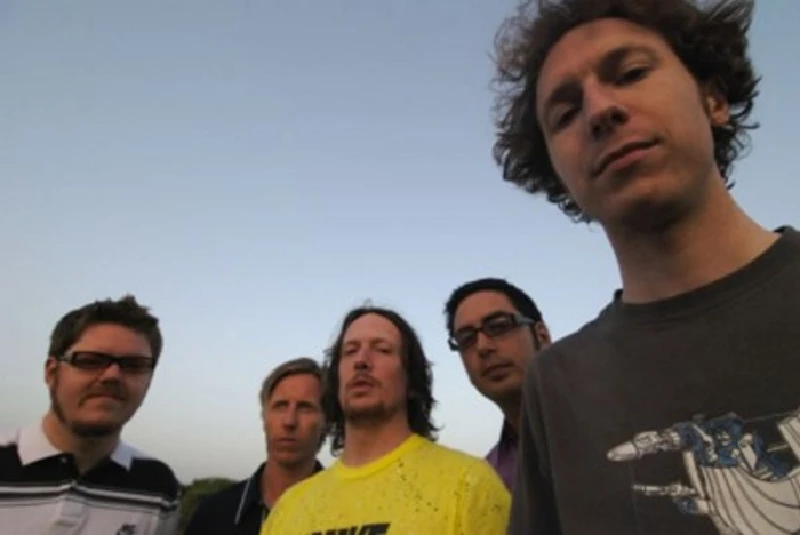
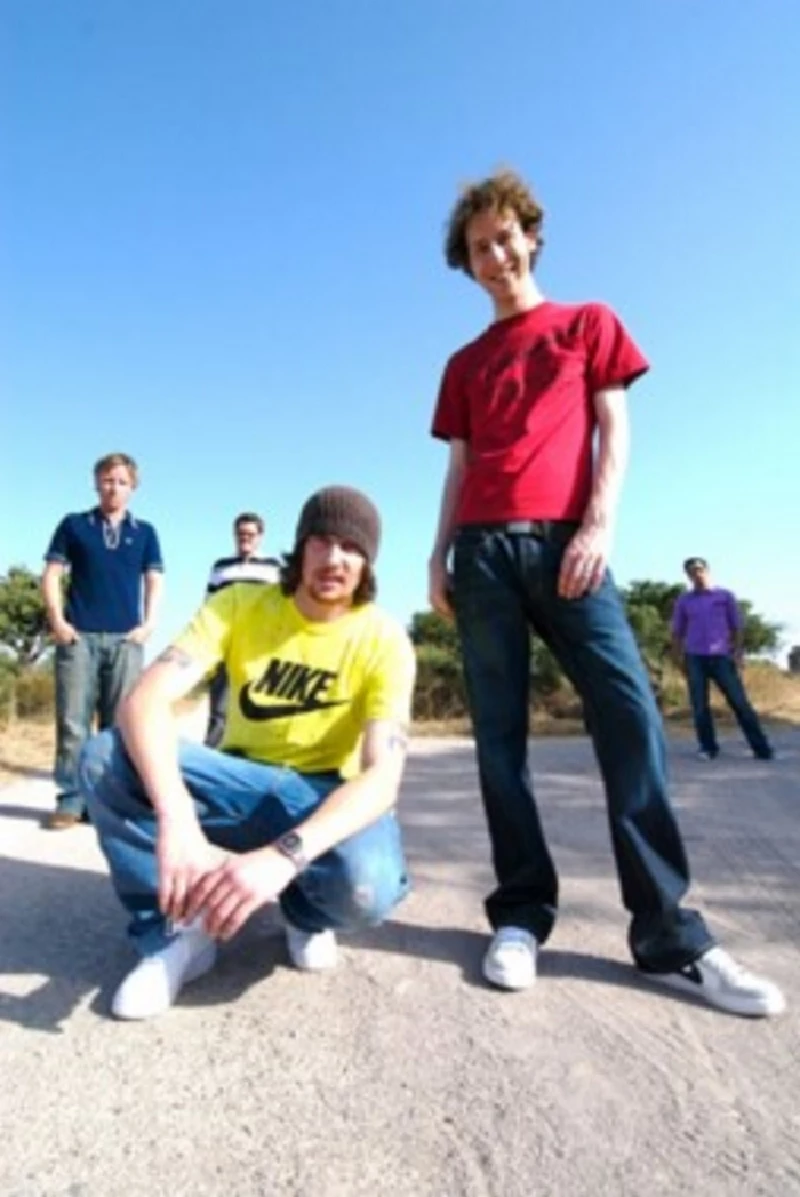
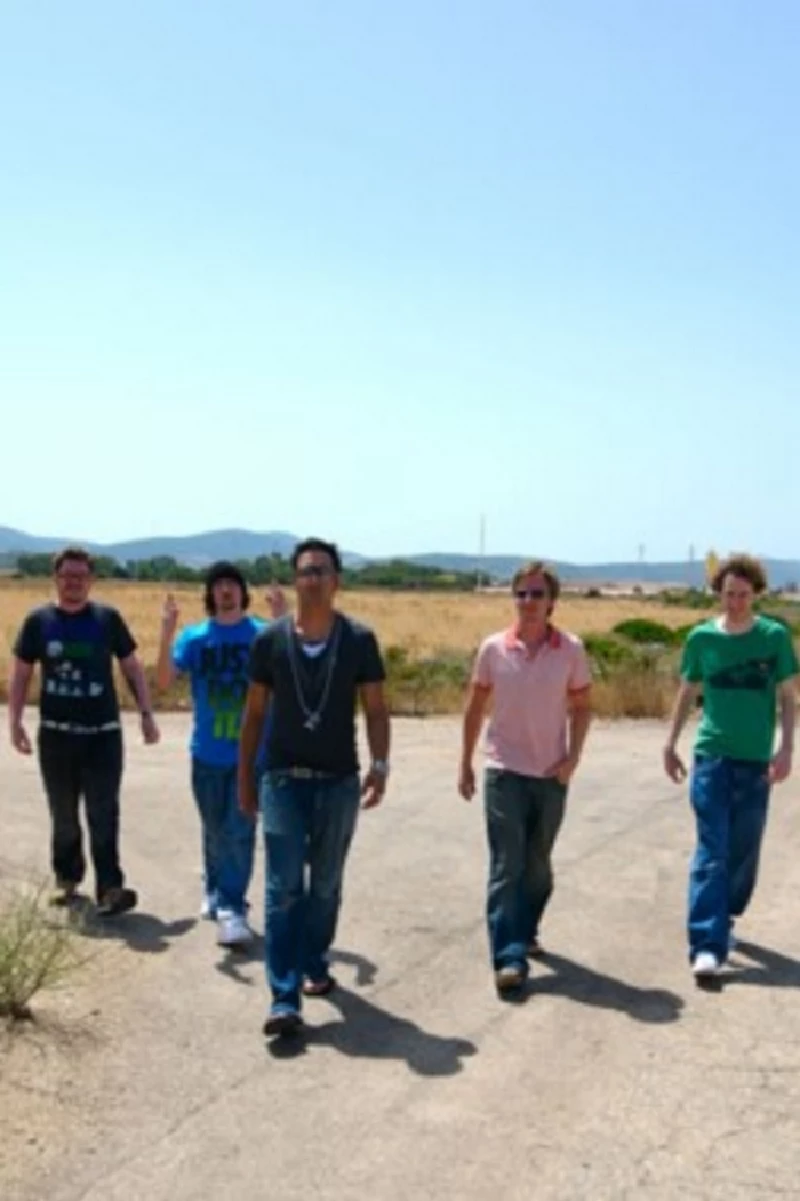
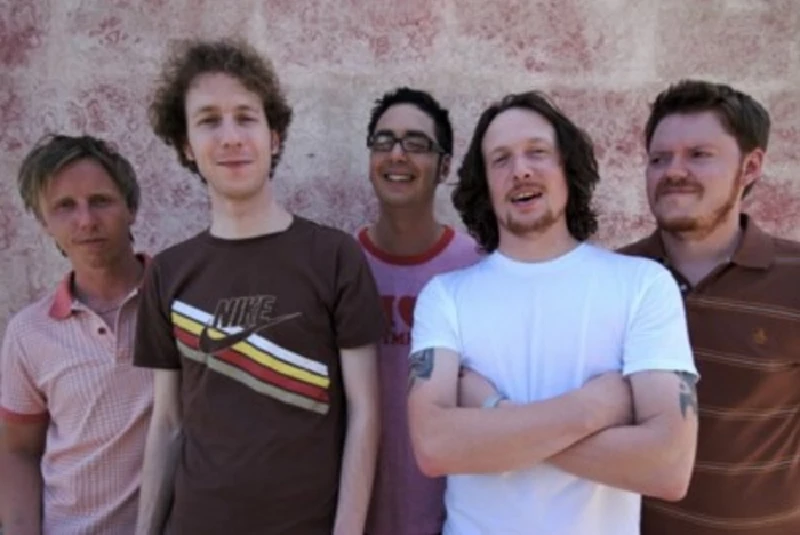
interviews |
|
Interview (2002) |
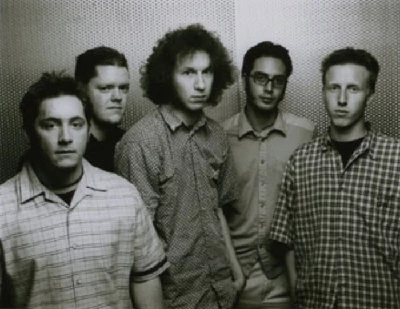
|
| Hundred Reasons are one of those bands that have made it big before they have made it at all. Formed in the South of England in November 1999, the five piece metal group, which features in its lin |
live reviews |
|
Leadmill, Sheffield, 17/1/2007 |
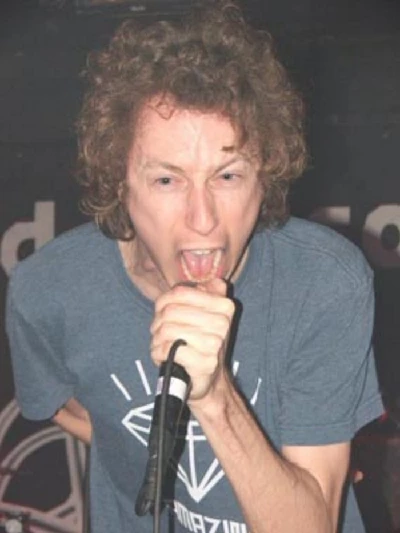
|
| New Pennyblackmusic writer Russell Ferguson is impressed by punk/metal act Hundred Reasons' passion and energy at a gig on their latest tour at the Sheffield Leadmill |
| Academy 3, Manchester, 3/4/2006 |
| Reading University, 17/6/2002 |
reviews |
|
Quick the Word, Sharp the Action (2009) |
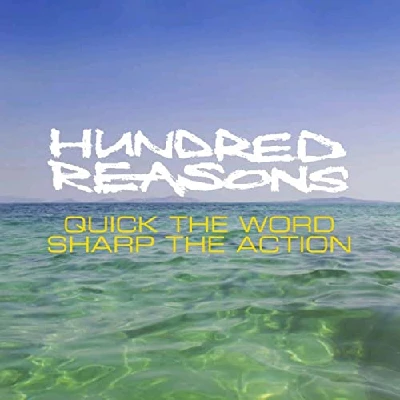
|
| Unfortunate re-release of emo-metal band Hundred Reasons little heard, but instangly forgettable fourth album, 'Quick the Word, Sharp the Action' |
most viewed articles
current edition
Carl Ewens - David Bowie 1964 to 1982 On Track: Every Album, Every SongArmory Show - Interview with Richard Jobson
Colin Blunstone - Thalia Hall, Chicago, 16/7/2025
Visor Fest - Valencia, Spain, 26/9/2025...27/9/2025
Bathers - Photoscapes 1
John McKay - Interview
Loft - Interview
Billie Eilish - O2 Arena, London, 10/7/2025
Robert Forster - Interview
Sir Tim Rice - Interview
previous editions
Heavenly - P.U.N.K. Girl EPManic Street Preachers - (Gig of a Lifetime) Millennium Stadium, Cardiff, December 1999
Beautiful South - Ten Songs That Made Me Love...
Oasis - Oasis, Earl's Court, London, 1995
Prolapse - Interview
Coldplay - Wembley Arena. London, 16/8/2022
Boomtown Rats - Ten Songs That Made Me Love....
Pixies - Ten Songs That Made Me Love...
Trudie Myerscough-Harris - Interview
Peter Perrett - In Dreams Begin Responsibilities Interview Part One
most viewed reviews
current edition
Amy Macdonald - Is This What You've Been Waiting For?Sick Man of Europe - The Sick Man of Europe
Lucy Spraggan - Other Sides of the Moon
Phew, Erika Kobayashi,, Dieter Moebius - Radium Girls
Alice Cooper - The Revenge of Alice Cooper
Davey Woodward - Mumbo in the Jumbo
Bush - I Beat Loneliness
Blueboy - 2
Suzanne Vega - Flying With Angels
Cynthia Erivo - I Forgive You
Pennyblackmusic Regular Contributors
Adrian Janes
Amanda J. Window
Andrew Twambley
Anthony Dhanendran
Benjamin Howarth
Cila Warncke
Daniel Cressey
Darren Aston
Dastardly
Dave Goodwin
Denzil Watson
Dominic B. Simpson
Eoghan Lyng
Fiona Hutchings
Harry Sherriff
Helen Tipping
Jamie Rowland
John Clarkson
Julie Cruickshank
Kimberly Bright
Lisa Torem
Maarten Schiethart